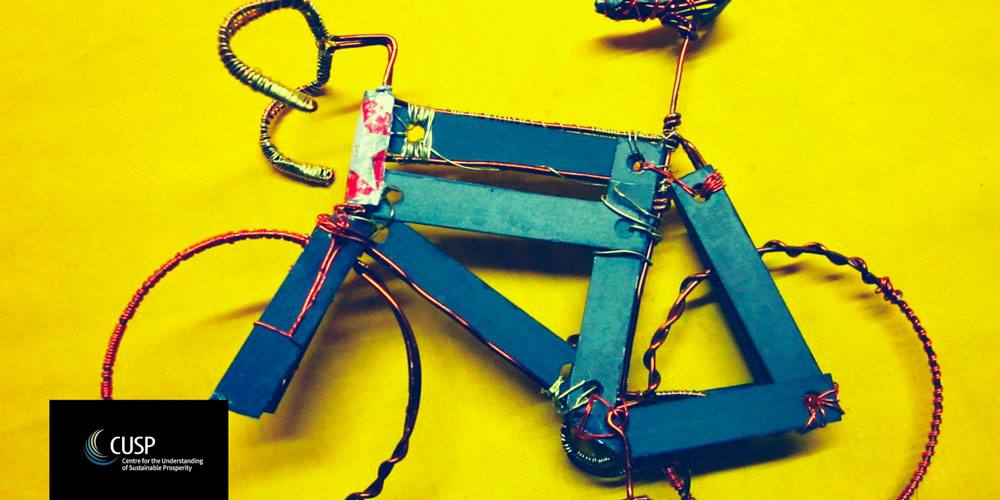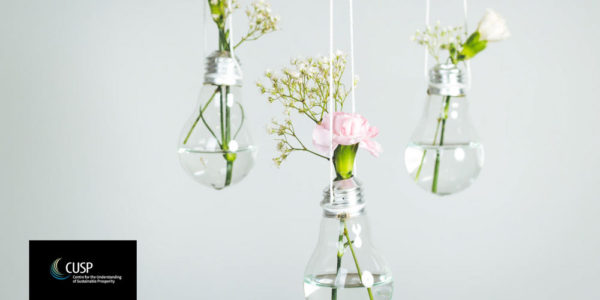Businesses as promoters of consumer pro-environmental behaviour?
Remaining within the ecological and resource constraints of a finite planet requires substantial reductions in the rate at which individuals consume. But how can we best encourage people to adopt more sustainable behaviours and who is best placed to encourage these changes? Summarising their recent journal article with Birgitta Gatersleben, Patrick Elf and Amy Isham consider whether businesses can act as drivers of pro-environmental behaviour change amongst their customers.
Changing behaviours is difficult. Maintaining behaviour change even more. With current global challenges such as resource overconsumption and looming climate breakdown to name just a few, there are, however, no alternatives any longer.
Businesses have an impressive track record demonstrating their power to influence our behaviours through omnipresent marketing campaigns, clever product placements or subtle nudges sometimes changing our behaviours without us realising it. However, their efforts are normally focused on the primary goal of increasing profits and as such they often encourage greater consumption. But can businesses also use their influence to encourage more pro-environmental and sustainable behaviours? In our latest journal article, we put this idea to the test by examining the IKEA Live Lagom project.
As part of their effort to become People and Planet positive, IKEA UK & Ireland[1] partnered with Hubbub UK and the University of Surrey to design the Live Lagom project. The Swedish word Lagom comes from a proverb meaning “just the right amount” or “there is virtue in moderation” and is sometimes described as integral part of the Scandi way of life. The project’s goal was to test if they can make sustainable living at home easy, attractive and affordable for the many. It involved a variety of different types of interventions such as getting participants to set goals, attend participatory workshops and write blogs reflecting on their progress. This enabled participating households to learn about the benefits of living more sustainably, and ways to implement pro-environmental behaviours into their everyday lives[2].
Our role within the partnership was to independently examine the outcomes of the project. Three consecutive participants cohorts took part, each lasting one year. We compared the extent to which participants reported engaging in a range of pro-environmental behaviours such as switching-off lights and appliances, repairing or upcycling items and consuming fair trade and eco-labelled products at the start and the end of the project. In addition, we were able to collect follow-up data both one year and two years after the projects had finished to see if people had maintained any changes in their behaviour or reverted to their old ways.
The findings demonstrated across all cohorts that those individuals who had taken part in the Live Lagom project showed significant increases in the extent to which they engaged in all the pro-environmental behaviours assessed. Such changes were not observed in a matched control group indicating that these changes must have been the result of taking part in Live Lagom. There was only one exception to this. In the final year of the project both the control and interventions groups increased their engagement in walking or cycling (rather than driving) for short journeys and buying fair trade products, perhaps indicating an increase in environmental awareness in the general population. An exciting finding was that these increases in pro-environmental behaviour appeared to be sustained at the follow-up phase, even when this took place over two years after former participants had completed the Live Lagom project. This means that the project was able to promote pro-environmental behaviours that outlasted the project itself.
By building a behaviour change project IKEA was able to better understand how they can support their customers in their ambition to live more sustainable lifestyles at home. Moreover, we found that those individuals who took part in Live Lagom had a more positive attitude towards the company after taking part, potentially strengthening their ties with their customers.
However, what this research also shows is that there is no silver-bullet that can lead us directly to sustainable prosperity through a fixed set of interventions. The project followed a co-creational approach, during which IKEA operated as what we coined a Lifestyle Change Support System for the participants. The applied interventions were broad, responded to feedback from the participants and formed group dynamics[3]. Nevertheless, this research highlights that effort by commercial businesses to improve the sustainable lifestyles of their customers could be an important factor that can helps us to accelerate the necessary transition to a more sustainable tomorrow. Businesses may be uncertain to explore new approaches to sustainability due to the significant financial and non-financial resources required. However, following the positive feedback and our initial analysis of the Live Lagom project, IKEA has now made it part of their sustainability strategy. This should hopefully encourage other businesses to trial and embrace similar projects that go above and beyond conventional business practices.
[1] IKEA UK & Ireland is a member of the Aldersgate Group, a CUSP partner institution.
[2] More information about the Live Lagom project can be found here: https://www.ikea.com/gb/en/this-is-ikea/sustainable-everyday/ikea-live-lagom-community-pub8d845141
[3] Something we previously explored. See Elf et al (2019) https://www.frontiersin.org/articles/10.3389/fpsyg.2018.02699/full




